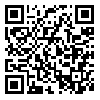Volume 22, Issue 2 (8-2020)
yafte 2020, 22(2): 144-159 |
Back to browse issues page
Download citation:
BibTeX | RIS | EndNote | Medlars | ProCite | Reference Manager | RefWorks
Send citation to:



BibTeX | RIS | EndNote | Medlars | ProCite | Reference Manager | RefWorks
Send citation to:
Niazvand F, Khorsandi L S, Absalan F, Ashtari A. Effect of Quercetin Solid Lipid Nanoparticles on Autophagy and Atg5 Protein Expression Levels in Human Breast Cancer Cell Line (MCF-7). yafte 2020; 22 (2) :144-159
URL: http://yafte.lums.ac.ir/article-1-2991-en.html
URL: http://yafte.lums.ac.ir/article-1-2991-en.html
Department of Anatomical Sciences, Faculty of Medicine, Abadan University of Medical Sciences, Abadan, Iran
Abstract: (4974 Views)
Background: Due to proven anti-tumor activity of quercetin (QT), however the low effectiveness of QT has restricted its use. This study aimed to assess the toxic effect of QT encapsulated in solid lipid nanoparticles (QT-SLNs) on the cell death (Autophagy) of MCF-7 human breast cancer cells.
Materials and Methods: MCF-7 and MCF-10A (non-tumorigenic cell line) cell lines treated with 25 µml/mL of QT or QT-SLNs for 48 h. Cell viability and Autophagy were evaluated to determine the toxic effectiveness of the QT-SLNs.
Results: The QT-SLNs with appropriate characteristics were prepared. The QT-SLNs showed sustained QT release until 48 h. Cytotoxicity assessments indicated that QT-SLNs inhibited MCF-7 cells growth with a low IC50 (50% inhibitory concentration) value, compared to the free QT. QT-SLNs induced a significantly increased in Autophagy in the MCF-7 cells. Following QT-SLNs treatment, the expression of the ATG-5 protein significantly increased in comparison with free QT-treated cells. Furthermore, The QT-SLNs significantly increased autophagy indexes in MCF-7 cells. Viability and autophagy of MCF-10A cells were not affected by QT or QT-SLNs.
Conclusions: According to these results, SLN significantly enhanced the toxic effect of QT against human breast cancer cells.
Materials and Methods: MCF-7 and MCF-10A (non-tumorigenic cell line) cell lines treated with 25 µml/mL of QT or QT-SLNs for 48 h. Cell viability and Autophagy were evaluated to determine the toxic effectiveness of the QT-SLNs.
Results: The QT-SLNs with appropriate characteristics were prepared. The QT-SLNs showed sustained QT release until 48 h. Cytotoxicity assessments indicated that QT-SLNs inhibited MCF-7 cells growth with a low IC50 (50% inhibitory concentration) value, compared to the free QT. QT-SLNs induced a significantly increased in Autophagy in the MCF-7 cells. Following QT-SLNs treatment, the expression of the ATG-5 protein significantly increased in comparison with free QT-treated cells. Furthermore, The QT-SLNs significantly increased autophagy indexes in MCF-7 cells. Viability and autophagy of MCF-10A cells were not affected by QT or QT-SLNs.
Conclusions: According to these results, SLN significantly enhanced the toxic effect of QT against human breast cancer cells.
Type of Study: Original Research |
Subject:
anatomy
Received: 2020/03/2 | Accepted: 2020/07/14 | Published: 2020/09/14
Received: 2020/03/2 | Accepted: 2020/07/14 | Published: 2020/09/14
Send email to the article author
| Rights and permissions | |
 |
This work is licensed under a Creative Commons Attribution-NonCommercial 4.0 International License. |






